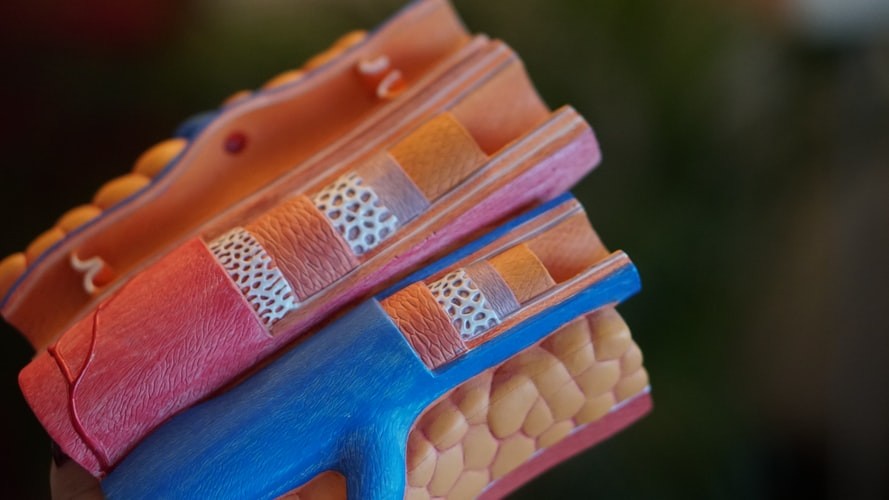
UC researchers to study drug’s effects on COVID-19 patients
UC and UC Health part of a clinical trial that examines the effects of razuprotafib
Researchers at the University of Cincinnati and UC Health will host a Phase 2 clinical trial (NCT04511650) to examine the effects of a drug that targets blood vessel inflammation and injury in patients with COVID-19.
They will study the effects of razuprotafib, an investigational drug that activates a key pathway for stabilizing blood vessels in the lung and other organs in patients with moderate to severe cases of the respiratory illness caused by the novel coronavirus SARS-CoV-2. The drug may prevent and treat respiratory distress in COVID-19 patients. The Phase 2 clinical trial will assess safety, tolerability and efficacy of razuprotafib.
UC is one of up to 20 sites across the United States selected for a randomized, double-blind and placebo-controlled study coordinated by Aerpio Pharmaceuticals, Inc. (Nasdaq: ARPO). As part of that trial, which is designed as a parallel-group, dose escalation and proof-of-concept study, razuprotafib will be administered three times daily for a seven-day period to hospitalized patients. The trial may enroll approximately 180 patients nationwide.

Richard Becker, MD.
Participants or their health proxy must give written informed consent to enroll in the trial.
“COVID-19 enters the body through the nose and back of the mouth and then travels to the upper and lower respiratory tracts,” says Richard Becker, MD, a UC Health cardiologist and director of the UC Heart, Lung and Vascular Institute. “In serious cases, the virus causes inflammation in the blood vessels of the lungs.”
The study drug is designed to target the pulmonary vasculature, with a goal of reducing inflammation, preserving artery and vein function and reducing capillary leak as a contributor for acute respiratory distress syndrome. That condition is characterized by severe shortness of breath often requiring a respirator for patients.
Becker, a professor of medicine in the UC College of Medicine, is principal investigator of the study at UC and is collaborating with co-principal investigator Duncan Hite, MD, director of medical critical care at UC Health and professor in the UC College of Medicine.

Duncan Hite, MD.
“Over the past few months, we have learned that vascular complications in COVID-19 are very common and more treatment options targeting this important component are needed to further reduce the burden of this infection on our society,” says Hite. “In addition to exciting and unique biologic targets on which this trial is focused, the study also provides a great opportunity to work closely with an innovative company local to our community.”
“By maintaining the integrity of blood vessels, reducing the likelihood of blood clotting and acute respiratory distress syndrome is possible,” says Becker. “Razuprotafib takes a very targeted and science-based approach and that’s why there is so much excitement around this study. The drug may also reduce lung inflammation and exert an antiviral effect. The patients eligible for the study have COVID-19 and they are sick enough to be hospitalized and need supplemental oxygen.”
Razuprotafib activates Tie2 receptor proteins on the surface of endothelial cells to bind to angiopoietins to support endothelial viability and function and are needed to form, repair and stabilize blood vessels. Pre-clinical studies and clinical data from Aerpio suggest promise for the drug in aiding COVID-19 patients.
The study is funded by the U.S government through the Medical Technology Enterprise Consortium (MTEC) and Aerpio Pharmaceuticals.
Investigators report no conflicts of interest in this study.
Next Lives Here
The University of Cincinnati is classified as a Research 1 institution by the Carnegie Commission and is ranked in the National Science Foundation's Top-35 public research universities. UC's graduate students and faculty investigate problems and innovate solutions with real-world impact. Next Lives Here.
Related Stories
Ohio could soon make breast cancer screenings more affordable
May 9, 2025
The University of Cincinnati Cancer Center's Ann Brown was featured in Local 12 and Cincinnati Enquirer reports on a bill introduced by Rep. Jean Schmidt in the Ohio legislature that seeks to eliminate out of pocket medical expenses such as copays and deductibles associated with supplemental breast cancer screenings.
Preparing students for artificial intelligence in education
May 8, 2025
Laurah Turner, PhD, associate dean for artificial intelligence and educational informatics at the University of Cincinnati's College of Medicine, recently joined the For The Love of EdTech podcast to discuss the usage of personalized learning and AI coaches to enhance educational experiences.
UC lab-on-a-chip devices take public health into home
May 8, 2025
University of Cincinnati engineers created a new device to help doctors diagnose depression and anxiety. The “lab-on-a-chip” device measures the stress hormone cortisol from a patient’s saliva. Knowing if a patient has elevated stress hormones can provide useful diagnostic information even if patients do not report feelings of anxiety, stress or depression in a standard mental health questionnaire.
